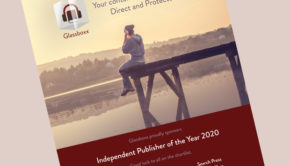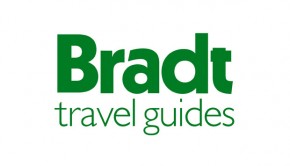Bradt thriving off the beaten track
North Korea, Iran, Uzbekistan, Sierra Leone—they are not destinations on many holiday-makers’ wishlists, but they have been among the recent remarkable success of travel publisher and Firsty client, Bradt.
Bradt had its best ever year in both turnover and profits in 2016—an eye-catching achievement at a time when many travel publishers have suffered big falls in sales. Nielsen BookScan figures suggest that sales in the print sector roughly halved between 2005 and 2014, with ebooks, apps and smartphones all stealing share from publishers. But the last two years have seen a return to modest growth in travel books, and Bradt has led the charge. ‘There’s been lots of talk about the death of the guidebook, but we’ve definitely seen a resurgence,’ says managing director Adrian Phillips.
What’s behind the revival? For one thing, the number of people travelling overseas has increased. But Bradt’s strength owes much more to its unique specialism: as a publisher of guides to countries that are well off the beaten track. From little pockets of Africa like Equatorial Guinea to troublespots like Iraq to far-flung regions like Lapland, Bradt has developed a reputation for guides to countries that are covered by few, if any, other publishers. Individually, sales of these books are never going to rival those of guides to mainstream holiday spots. But put together, they add up to something pretty substantial.
The distinctive list has helped Bradt to build an excellent reputation in the trade, giving retailers an interesting travel range beyond the run-of-the-mill tourist hotspots. And as Phillips points out, ‘difficult’ destinations like Libya, Kyrgyzstan or others covered by Bradt are much more likely to merit a guide than well-trodden countries like Spain or France. ‘The type of person who is interested in going to these places is going to prioritise the need for a good guidebook—they value good quality information from an expert.’
Bradt shows how independent publishers can flourish in the niches—in parts of the market that are overlooked by bigger publishers, but that provide great opportunities for smaller, focused operators. ‘We’ve always been known for covering places that others don’t, and that’s both a strength and a weakness,’ Phillips points out. ‘We were called ‘almost comically uncommercial’ once, but it’s how we’ve made our name, and we punch way above our weight now.’
Bradt’s recent success is also down to some superb marketing, via its e-newsletters and social media platforms in particular. With the help of Firsty, it has improved its website and e-commerce offer too, providing much more information to travellers and putting itself at the heart of the intrepid travelling community.
From a commercial point of view, this seems counter-intuitive. After all, the wealth of free online information that is available to consumers is usually blamed for the tribulations of guidebook publishers. ‘It’s something all publishers have struggled with, and we talked for a long time about how much content to put out there,’ says Phillips. His rule of thumb is to share no more than 5% of a guidebook’s content, and he thinks online resources serve as tasters for the title rather than cannibalise sales. In other words: once readers have glimpsed how a book can make their travel experience better, they are much more likely to buy it.
Besides, Phillips thinks there has been something of a backlash against internet resources, which are often biased, misguided or just plain wrong. ‘I think people are getting a bit tired of trying to make sense of all this online information. They want it curated by an expert in a convenient form, and a book is just that.’
Bradt is now busy broadening out its publishing, to include more mainstream destinations, in the UK as well as overseas; and more narrative travel publishing, like its Slow Travel Guides to areas of the UK and Roam Alone, a collection of solo travellers’ stories. These different strands of publishing are united by a spirit of thoughtful and adventurous travelling, Phillips says. ‘The biggest thing for us is to find different, unusual takes on travel publishing, whether that’s by destination or theme. We want to carry on being colourful and diverse.’
Watching Bradt thrive in such turbulent times for travel publishers has been fascinating, and it has been rewarded with places on shortlists at this year’s IPG Independent Publishing Awards and British Book Awards, not to mention numerous prizes in the travel sector. ‘It’s been fantastic to see our sales increase, but getting recognition from the publishing and travel industries has been brilliant too,’ Phillips says. ‘It shows to us that we’re going in the right direction—and hopefully it brightens up a few bleak attitudes to travel publishing.’
Learn how Firsty can help publishers create compelling websites




